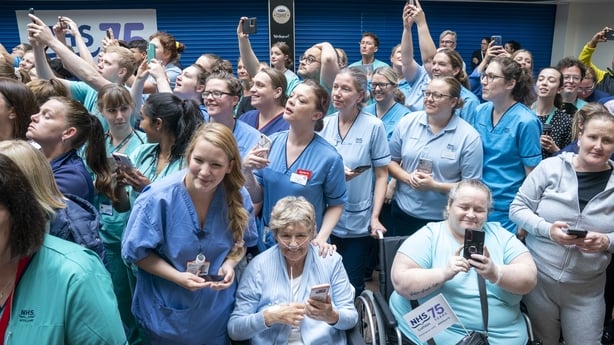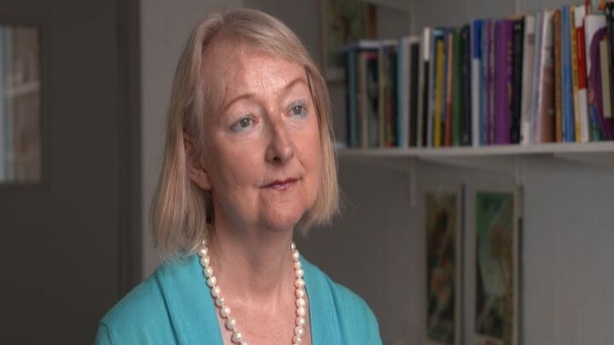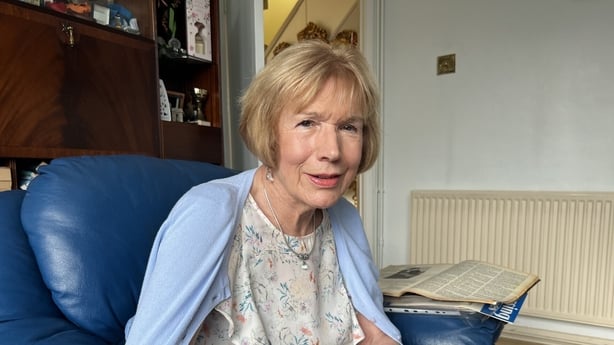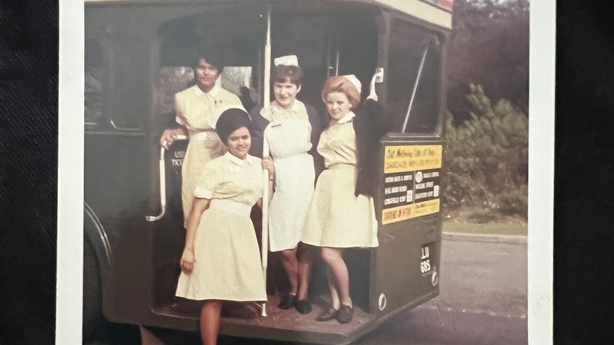Britain's National Health Service (NHS) has been described as the closest thing to a religion that English people have. If that is the case, then they are losing their faith.
On its 75th anniversary, waiting lists now stand at a new record of 7.42 million people in England, despite government promises. That means more that than one in eight of the population are awaiting medical treatment.
The NHS also has more than 122,000 vacant posts, which compares to 21,000 in 2010. The current understaffing is up to 10% which puts pressure on those working.
There have been a series of strikes by nurses, junior doctors and ambulance drivers. It is all adding up to a picture of an under resourced, demoralised institution.
Faced with a staff shortfall, the NHS is trying to attract nurses from other countries, including Ireland, just as it was when it was founded in 1948.

Professor Louise Ryan of London Metropolitan University carried out a study of the contribution made by Irish nurses to the NHS.
She said that Brexit is clearly having an effect on staff recruitment.
"They can't fill all the vacancies here in Britain. And they are no longer getting migrants coming here from within the EU, so we see they are once again looking to former colonies, India for example, to get nurses to come to this country".

She said in the early years the NHS put ads in local newspapers in Ireland to get girls as young as 17 to train as nurses in England.
By 1971 there were 31,000 Irish nurses in the NHS. There are just 4,000 now.
Prof Ryan said Irish women now have more opportunities now than they did in the 1950s and 60s and the NHS will not be able to rely on Irish migrants to fill the gaps the way it did in the past.
Bernie Naughton was 18 when she travelled to England to train as a nurse in 1965. It was a time when the NHS model of free healthcare from the cradle to the grave was held up as an ideal to other countries.
But even then the model relied heavily on immigration. When Ms Naughton qualified there were 31 in her class with just three from England. There were six from Ireland and most were from the Caribbean, Asia and Africa.

She said she is proud of the contribution made by her and her colleagues, adding, "we made a difference".
Ms Naughton said she would not criticise nurses who feel they have had enough of low wages but says there are opportunities in the health service.
"I would have no hesitation whatsoever in recommending coming to the UK and working in the NHS and progressing, I think there are still great opportunities in the NHS".

The British government has announced a plan to hire 300,000 new health workers by 2037 with a focus on training more people from Britain.
Experts also talk about an increased focus on preventative medicine, the use of AI and robotics to improve the service.
However, there are doubts the NHS model can survive in its present form given how people are living longer and with increasing number of costly treatments available.
The phrase about the NHS being an English religion was coined by former Tory chancellor Nigel Lawson who was complaining that talk of reforming was greeted like heresy.
However, questions are being asked. Andrew Elder, president of the Royal College of Physicians of Edinburgh, was quoted by the BBC as questioning how free healthcare can survive in the modern world.
"Organ transplant, kidney dialysis, heart valve and coronary artery surgery, special care baby units, in vitro fertilisation (IVF), cataract extraction and joint replacement did not exist in 1948," he pointed out.
"Can we really afford to provide everything that is available, for everybody, across their entire life course? And if we cannot, how should we decide what we can provide?"
NHS funding traditionally drops under Conservative governments and revives once Labour comes into power.
But with Conservative Prime Minister Rishi Sunak making the reduction of waiting lists one of his five pledges and Labour hoping to form the next government, it seems unlikely that as the NHS celebrates its 75th birthday that any political leader will be giving up on the traditional NHS model any time soon.







